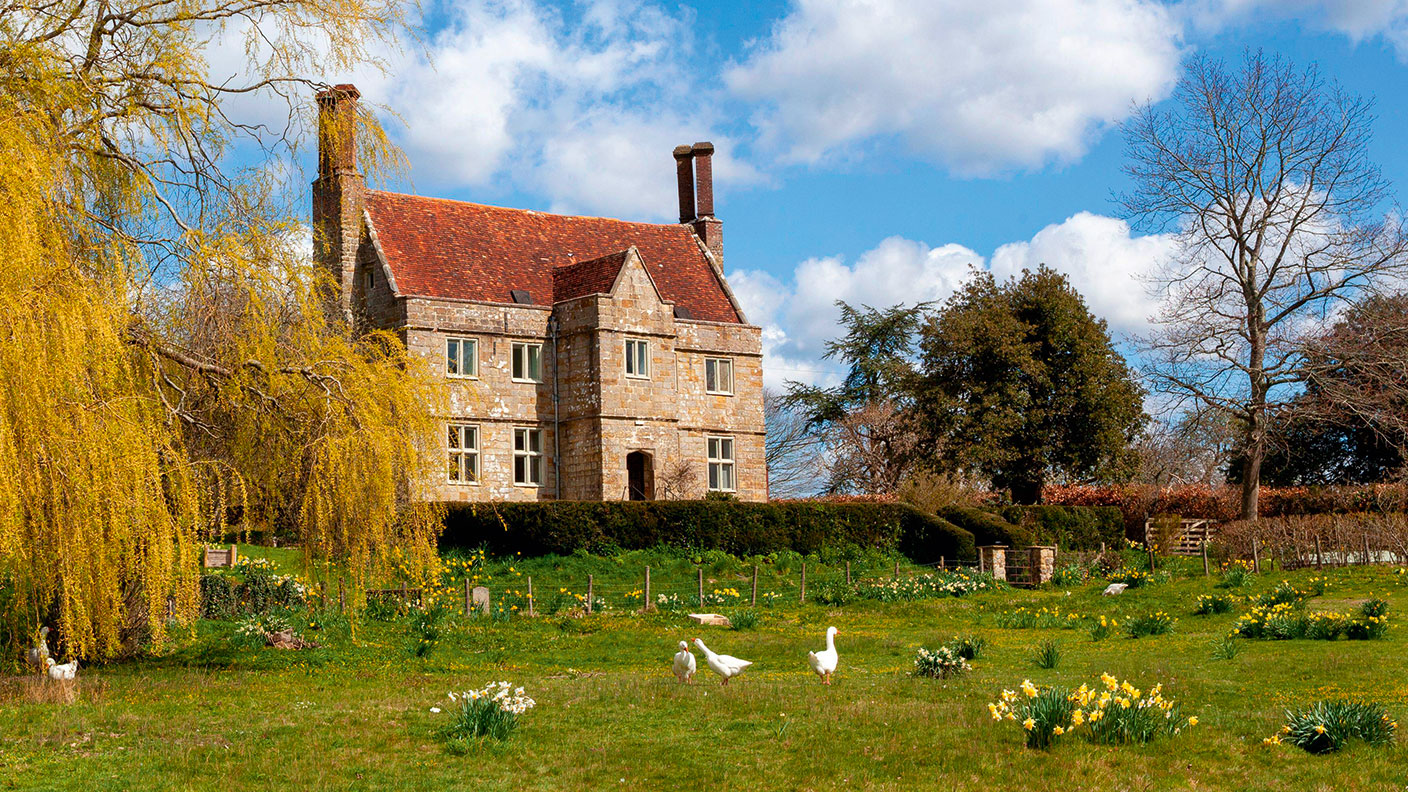Shared suffering in house prices
The young and the old both think they had it worse when buying a house, says Merryn Somerset Webb. But shared misery is coming.

Get the latest financial news, insights and expert analysis from our award-winning MoneyWeek team, to help you understand what really matters when it comes to your finances.
You are now subscribed
Your newsletter sign-up was successful
Want to add more newsletters?

Twice daily
MoneyWeek
Get the latest financial news, insights and expert analysis from our award-winning MoneyWeek team, to help you understand what really matters when it comes to your finances.

Four times a week
Look After My Bills
Sign up to our free money-saving newsletter, filled with the latest news and expert advice to help you find the best tips and deals for managing your bills. Start saving today!
A few days ago, someone clearing out their house for sale passed me a copy of their mortgage deed. They had borrowed £35,000 on a repayment basis from the now-defunct Northern Rock in 1990, at an "initial" interest rate of 14.75%. I thought that might interest people. So I tweeted a picture of the document. All hell broke loose. Older readers clocked the rate and started to remember the hell of having to pay it.
They told of working two jobs; living on foraged foods ("blackberries, windfall apples and chips", said one woman); never taking a holiday; and forsaking all luxuries just to keep a roof over their heads ("no going out for meals, drinks or treats"). One reader came out in a "cold sweat" just thinking about how his rate peaked at 17%. Others relived the nightmare of failed endowment funds and having to come up with vast amounts of extra capital to pay off mortgages at the end of terms. The young today, they said, have no idea how good they have it.
Younger readers barely noticed the interest rate. They just saw the principal. £35,000! Imagine, they said, being able to buy a house for that (the average house price at the start of 1990 was actually £58,000). Today £35,000 would barely be enough for a deposit anywhere in the south. What matter the rates if they come with low prices such that you can actually buy a house in the first place? The old, they said, have no idea how good they had it.
MoneyWeek
Subscribe to MoneyWeek today and get your first six magazine issues absolutely FREE

Sign up to Money Morning
Don't miss the latest investment and personal finances news, market analysis, plus money-saving tips with our free twice-daily newsletter
Don't miss the latest investment and personal finances news, market analysis, plus money-saving tips with our free twice-daily newsletter
Who's right? On the face of it, it is today's buyers: back in 1990, the average house-price-to-income ratio was around 3.5 times (on Office for National Statistics numbers). Today it is more like 5.5 times. Houses are just more expensive than they were in absolute terms. However, that doesn't mean that they are harder to pay for. Look at it in terms of affordability, and the buyers of 1990 begin to take the "suffering" prize.
Mortgage payments as a percentage of income in 1990 were more than 50%. Today they are only just over 30%. Anyone who has managed to get their hands on a deposit (the key problem today) is in terms of the share of income left after housing costs very significantly better off than a buyer in the 1990s. They get more drinks out than the oldies ever did.
The good news (sort of) is that the two generations might soon have an experience in common. UK rates aren't rising fast at the moment (the recent weak GDP numbers mean that 14.75% is a long way off), but they will rise. When they do, what is now a gentle plateauing in prices (down 0.1% in February) could easily turn into a proper fall (the affordability of monthly payments really matters).
Then everyone will be able to share the misery of negative equity. If this idea puts you off buying, there are plenty of other places for your money in the UK (although deposit savings should be kept in cash!). See Max King's views on Alliance Trust (all good) and Jonathan Compton's on the UK stockmarket (mostly good).
Get the latest financial news, insights and expert analysis from our award-winning MoneyWeek team, to help you understand what really matters when it comes to your finances.

-
 Early signs of the AI apocalypse?
Early signs of the AI apocalypse?Uncertainty is rife as investors question what the impact of AI will be.
-
 Reach for the stars to boost Britain's space industry
Reach for the stars to boost Britain's space industryopinion We can’t afford to neglect Britain's space industry. Unfortunately, the government is taking completely the wrong approach, says Matthew Lynn
-
 What to do as the age of cheap money and overpriced equities ends
What to do as the age of cheap money and overpriced equities endsEditor's letter The age of cheap money, overpriced equities and negative interest rates is over. The great bond bull market is over. All this means you will be losing money, says Merryn Somerset Webb. What can you do to protect yourself?
-
 Investors are bullish – but be very careful
Investors are bullish – but be very carefulEditor's letter Many investors are buying the dip, convinced the latest upswing is the start of a new bull market. The odds are that it’s not, says Andrew Van Sickle. The bear has unfinished business.
-
The MoneyWeek approach to investing
Editor's letter At MoneyWeek, our aim is simple: to give you intelligent and enjoyable commentary on the most important financial stories, and tell you how to profit from them. So how do we do that?
-
 Celebrity bitcoin ads echo the subprime mortgage crisis
Celebrity bitcoin ads echo the subprime mortgage crisisEditor's letter A wave of ads featuring celebrities punting crypto to the masses are reminiscent of how low income Americans were encouraged to take on loans they couldn’t afford, says Merryn Somerset Webb.
-
 Will the UK's property slowdown turn into a house-price crash?
Will the UK's property slowdown turn into a house-price crash?Editor's letter As the cost-of-living crisis intensifies and interest rate rise, it is hard to see reasons for UK house prices to keep rising, says Merryn Somerset Webb.
-
 The unintended consequences of ESG investing
The unintended consequences of ESG investingEditor's letter Many people are refusing to invest in energy companies, citing "ESG" concerns. But we still need fossil fuels, says Merryn Somerset Webb, and will for years to come. Boycotting the sector is a bad idea.
-
 What sardines can teach investors about today's markets
What sardines can teach investors about today's marketsEditor's letter A California tale of “eating sardines” and “trading sardines” can help us divide investments into speculative and real, says Merryn Somerset Webb. Something that's very useful when looking at today’s markets.
-
 The market finally seems to be getting it
The market finally seems to be getting itEditor's letter Reality checks are coming fast to the markets, says Merryn Somerset Webb – with even 2022’s safe havens beginning to reflect recession worries.